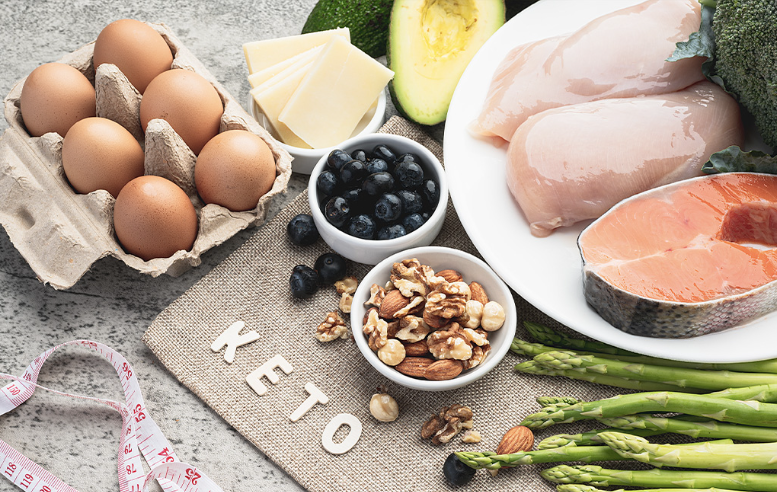
Having a baby is a nine-month period of continuous transformation.
As a baby develops in its mother’s womb, a woman will experience dramatic emotional and physical changes in preparation for birth. Incited by a rush of hormones released from the placenta, the heart’s rhythm speeds up, blood rushes through the veins and arteries, muscles and joints shift and, of course, the belly expands to accommodate the growing child.
As you may be all too well aware, such a rapid metamorphosis can cause serious discomfort — swollen feet and hands, stretched skin, morning sickness, cramped muscles and an achy back are just a few of the less-than-pleasant physical side effects of gestation.
So, it’s no surprise why many expecting mothers wonder isCBD safe to use when expecting? Can CBD help with morning sickness?
CBD is not safe to use when expecting in any shape or form.
Here’s what you need to know about using CBD cream when expecting.
Can I Take CBD Oil or Use CBD Cream When Expecting?
Today, many adults use CBD oils and creams as a part of their normal health, wellness and vitality self-care routine. Naturally, some expecting women consider using CBD to relieve localized discomfort, manage stretch marks, ease stress and help with sleep.
Being cautious and checking whether CBD products like a CBD gummy, CBD oil or cream are safe when expecting is a completely valid and responsible question to ask.
But, in short, no. CBD is not safe to use when expecting in any shape or form.
Although hemp-based CBD products in their various forms are safe and legal for the vast majority of adults to use, the FDA “strongly advises against the use of cannabidiol (CBD), tetrahydrocannabinol (THC) and marijuana in any form when expecting or while breastfeeding.”
At the moment, there simply isn’t enough research and data to determine whether CBD use is safe when expecting — even for any CBD topical that doesn’t enter the bloodstream. So, until we do have conclusive evidence and the FDA signals the green light, health experts recommend that you play it safe and err on the side of caution.
While there’s little doubt that CBD could help relieve some of the more unpleasant side effects of growing a baby, unfortunately, it’s not just your health that’s an immediate concern, but the health of your little passenger as well.
Put simply, what you put in and on your body has externalities that can also negatively impact your child’s growth and development.
Remember, it’s not just CBD use that’s ill-advised when expecting. Women are strongly recommended to temporarily abstain from a host of other foods and habits as well, including:
- Caffeine
- Tobacco
- Alcohol
- Seafood (especially raw fish and shellfish)
- Unpasteurized foods
What Is CBD?
If you’re new to the CBD space, you may wonder why mothers — or any adult for that matter — would want to use it in the first place.
What’s with all the buzz?
In short, CBD is one of more than 100 phytocannabinoids that can be found in the cannabis plant, specifically the hemp plant. And because it has naturally beneficial properties, each day, millions of Americans take or apply CBD in some form — ranging from oils to topical CBD to chewables — as a normal part of their self-care regimen.
CBD vs THC
Before we delve any further into the science of CBD, allow us a brief aside. You may read the word cannabis and think marijuana. And you wouldn’t be wrong making this connection, seeing as the hemp plant and marijuana plant are both offshoots of cannabis.
Here, the key difference between the two is THC content.
Delta-9-tetrahydrocannabinol, THC for short, is the primary phytocannabinoid in the marijuana strain of cannabis. This psychotropic cannabinoid is what causes the tell-tale high, which impacts a person’s:
- Perception
- Mood
- Emotions
- Cognition
- Appetite
- Motor function
Hemp, on the other hand — to be legally grown, sold and classified as hemp— cannot contain more than 0.3% THC; whereas THC potency in modern marijuana strains could range from 20% to 40% THC in flowers and even higher ranges in concentrates.
So, although they may share chemical similarities, hemp-based CBD is not psychoactive, while THC is. That means CBD won’t get you high and is safe to use as a normal part of daily activities.
What Does CBD Do?
This brings us back to the popularity of CBD for health, wellness and vitality.
As a phytocannabinoid, CBD is an active ingredient that interfaces with naturally-occurring cannabinoid receptors spread across a person’s endocannabinoid system (ECS). The ECS plays an essential role in regulating bodily functions, ranging from motor control and sleep to immune response. According to Harvard Health:
“The ECS comprises a vast network of chemical signals and cellular receptors that are densely packed throughout our brains and bodies. The "cannabinoid" receptors in the brain — the CB1 receptors — outnumber many of the other receptor types on the brain. They act like traffic cops to control the levels and activity of most of the other neurotransmitters.”
In order to stimulate these receptors, a person’s body naturally produces endocannabinoids, which share a similar chemical structure to phytocannabinoids found in the cannabis plant.
Much of the interplay between cannabinoids and the ECS is still shrouded in mystery. Each day, researchers still unearth more information about their relationship.
However, we doknow that because of the comparable nature of endocannabinoids, a person can take hemp-based CBD to stimulate the ECS and promote homeostasis.
Health Benefits of CBD
So, what are some of the ways that CBD can help support a person’s health, wellness and vitality?
There are plenty of benefits of CBD oil and other products. Incorporating CBD into your daily health regimen could foster the following positive effects:
#1 May Support Restful Sleep
Sleep is a vital part of mental and physiological recovery. It enables your mind and body to recharge so you wake up the next day feeling alert and refreshed.
A good night’s sleep is just as essential to a person’s health as eating, drinking or breathing. And yet, sleep is far too often overlooked. But a person does so at their peril. Sleep deprivation can wreak havoc on a person’s mental and physical health and put them at greater risk for developing diseases or bodily dysfunctions.
But many of the people who want more sleep struggle to actually fall asleep. What with the stresses, aches and demands of modern living, it’s little wonder why more than 70 million Americans suffer from sleep issues.
This is why many people turn to CBD for sleep support.
By taking CBD before you go to bed, you can ease aches and discomfort, calm your mind and relax. Then once you areasleep, sleep-enhancing ingredients like melatonin, chamomile and valerian root can support a deep slumber.
#2 May Promote Healthy Skin
One of the more common reasons why an expecting mother would ask if CBD cream is safe when expecting would be to help with stretch marks that commonly appear on the stomach, thighs and breasts.
This sentiment is understandable, seeing as CBD creams are commonly used to soothe and moisturize irritated skin.
Whether it’s blemishes, aging or dryness, by using CBD lotion in your skincare routine, you may be able to hydrate and rejuvenate the skin on your face, hands and extremities.
Having said that, if you have blemish-prone skin, you may want to consult a trustworthy dermatologist before incorporating a new moisturizing product. Also, if you’re expecting, avoid CBD creams entirely. However, don’t hesitate to benefit from a CBD beauty boost after giving birth.
#3 May Ease Exercise-Related Aches and Discomfort
Are you sore from daily activities?
Whether you experience discomfort from a full-fledged exercise routine or from simply lugging around the kids each day, muscle and joint soreness could get in the way of what needs doing. Exercise-related aches and discomfort could interfere with your goals and negatively impact your physical and mental health.
The world doesn’t stop spinning when you’re hurting. Fortunately, CBD may be able to help you soothe and manage physical discomfort.
By taking CBD orally and rubbing CBD cream, CBD balm or CBD roll-on pain relief into the problematic areas, you can foster recovery both internally and subdermally.
#4 May Ease Your Nerves
Do you feel stressed?
If so, that’s normal. Modern living is a constant bombardment of stresses and triggers. What matters is how you handle it.
Left unaddressed, stress can wreak havoc on a person’s mental and physical well-being. Sometimes, you may need a little help.
This is where CBD can make a difference.
Although CBD won’t make the sources of stress melt away, it can help you settle your nerves, relax and be better prepared to confront the stresses of daily life head-on.
How to Find High-Quality CBD
So, CBD is not safe when expecting or breastfeeding, but what if you want to try CBD once your baby grows up to be a toddler?
Even then, you must be careful about trusting CBD products. While the legalization of hemp hasdramatically boosted funding into research on CBD’s safety and efficacy, when it comes to regulatory control over the space, we’re still in the wild-wild-west.
As of now, the production of CBD is poorly regulated — if regulated at all — in most states.
In fact, a 2020 study tested more than 105 CBD products to see whether the label matched the actual contents. Researchers discovered that mislabeling of CBD content was a widespread phenomenon. According to John Hopkins Medicine:
Only 89 (85%) of the 105 tested products listed the total amount of CBD in milligrams on the label. Of the 89 products, 16 (18%) contained less CBD than advertised, 52 (58%) contained more CBD than advertised, and 21 (24%) were accurately labeled. On average, the in-store products contained 21% more CBD than advertised, and the online products contained 10% more CBD than advertised, though CBD label accuracy varied widely across products.
Knowing that you can’t simply take a CBD company’s word for it. There are too many snake oil salesmen in the space looking to make a quick buck. Before you buy or try, you must conduct thorough research. That includes:
- Researching the company’s reputation
- Reading the label carefully
- Finding the certificate of authenticity, which tells you that the label has been tested and authorized by a third-party lab
By taking these precautions, you can ensure that you only use high-quality CBD.
Zebra CBD — Avoid When Expecting
In the future, this recommendation could change. We maydiscover that CBD products (especially a topical CBD product) are harmless when expecting. But, for now, an expecting mother should avoid taking any type of CBD product until their child is out of the womb and no longer breastfeeding.
When you reach that stage and you areready to safely reincorporate CBD into your daily routine, Zebra CBD will be here for you. If you’re older, consider CBD for menopause to help relieve any discomfort.
Every one of our products is twice-tested, certified and stamped with a label of accuracy guarantee to ensure that our claims meet our promises.
At Zebra CD, your health and safety are our priority.
Sources:
Harvard Health Publishing. The Endocannabinoid System: Essential and Mysterious. https://www.health.harvard.edu/blog/the-endocannabinoid-system-essential-and-mysterious-202108112569
John Hopkins Medicine. Study Shows Widespread Mislabeling of CBD Content Occurs for Over-the-Counter Products. https://www.hopkinsmedicine.org/news/newsroom/news-releases/study-shows-widespread-mislabeling-of-cbd-content-occurs-for-over-the-counter-products









